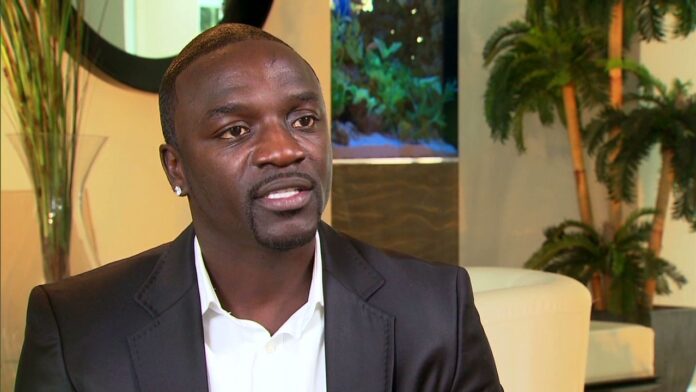Senegalese-American singer and entrepreneur, Akon, has stirred debate with his bold statement that Lagos State could have become the world’s financial capital if Nigeria had retained full control of its oil revenues since independence.
The 52-year-old music star, famous for his 2004 hit “Locked Up” featuring Styles P, shared his views in an AI-generated video on Instagram on Tuesday. In the video, Akon argued that Nigeria has lost a historic opportunity to lead the world in finance, technology, and entertainment due to decades of foreign control over the country’s natural resources.
“What if Nigeria had kept 100 per cent of its oil money since 1960 instead of letting Shell and Exxon take it? We’re talking about $2 trillion that could have stayed in African hands,” he said. Akon added that such a financial foundation could have transformed Lagos into a hub surpassing even London and New York.
According to the singer, the ripple effects of controlling oil revenues would have been enormous. “Nigerian universities would lead global innovation, churning out the next generation of tech giants. Nollywood wouldn’t just compete with Hollywood but also completely dominate global entertainment. London’s banking district would be empty as every major firm relocates to Abuja,” Akon said.
Akon’s comments underscore long-standing concerns among economists and development experts about Africa’s resource management. Since Nigeria gained independence in 1960, multinational companies such as Shell and ExxonMobil have dominated oil production in the Niger Delta, with a significant portion of profits leaving the country. Critics argue that this has limited Nigeria’s ability to invest in infrastructure, education, and technology.
In his video, Akon also noted the potential geopolitical influence Nigeria could have achieved. “The global power structure would flip completely upside down. Instead of brain drain, Nigeria would attract the world’s brightest minds,” he said. The singer highlighted that Nigerian passports could have been more valuable than American ones and that Europe might have seen waves of skilled professionals crossing the Mediterranean to work in Africa.
Akon described this as a lost historical moment that could have fundamentally altered global economic and political power dynamics. “One decision in 1960 could have changed everything. Africa controlling its own resources changes the entire world order,” he said.
His remarks reflect the growing discourse on resource nationalism and the importance of retaining wealth generated within African countries. Over the decades, Nigeria has grappled with economic challenges, including reliance on imported goods, limited industrialisation, and uneven access to basic services—all of which critics link to the country’s historical management of oil wealth.
The singer, who has also launched philanthropic initiatives across Africa, such as Akon Lighting Africa, used the platform to encourage Nigerians and African leaders to consider the country’s untapped potential. In the caption accompanying the video, he wrote: “The possibilities are endless. But it’s never too late.”
Lagos, Africa’s most populous city and commercial hub, has long been seen as a symbol of the continent’s economic potential. The city hosts Nigeria’s stock exchange, multinational corporations, and a booming tech ecosystem. Yet, according to Akon, these achievements could have been even greater if Nigeria had fully retained its oil revenues.
Economists note that countries like Norway have successfully used oil wealth to build sovereign wealth funds, invest in infrastructure, and provide quality social services to their citizens. Akon’s statement suggests that Nigeria, with its abundant oil reserves, could have followed a similar path to create long-term economic and social development.
